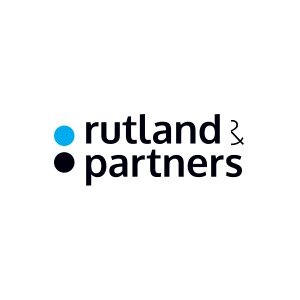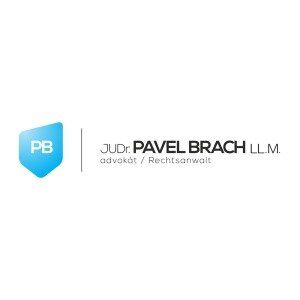Best Project Finance Lawyers in Prague
Share your needs with us, get contacted by law firms.
Free. Takes 2 min.
List of the best lawyers in Prague, Czechia
About Project Finance Law in Prague, Czechia
Project finance is a specialized field within finance and law that enables the funding of large infrastructure or industrial projects, such as energy plants, transportation systems, and real estate developments. In Prague, Czechia, project finance typically involves structuring complex financial arrangements where the project's cash flow and assets serve as the primary source of repayment and security for lenders. This field is heavily influenced by local regulations, international standards, and the needs of both public and private sector participants. Due to the sophistication and scale of such projects in Prague, project finance law encompasses negotiation, drafting, and enforcement of contracts, risk allocation, compliance with regulatory frameworks, and cross-border considerations.
Why You May Need a Lawyer
Seeking legal advice in project finance is crucial due to the high-value transactions, legal risks, and regulatory requirements involved. Some common situations where a lawyer’s assistance is invaluable include:
- Structuring complex project finance transactions to balance stakeholders’ interests
- Drafting and negotiating project and finance agreements
- Ensuring compliance with local and EU regulations
- Conducting legal due diligence for lenders and sponsors
- Advising on public-private partnership (PPP) structures
- Managing risks in cross-border investments
- Resolving contractual or regulatory disputes
- Advising on loan security arrangements and collateralization
- Assessing the tax implications of various project finance structures
- Coordinating with governmental authorities and meeting permitting requirements
Local Laws Overview
Project finance in Prague is governed by a combination of Czech national laws, European Union directives, and international contractual best practices. Key legal aspects include:
- Civil Code: Contracts, collateral, and enforcement rights fall within the Czech Civil Code
- Banking and Finance Regulation: Licensed institutions must comply with regulations set by the Czech National Bank
- Public Procurement: PPPs and projects involving government participation follow the Public Procurement Act
- Permitting and Environmental Laws: Infrastructure projects must meet extensive permitting and environmental requirements
- Taxation: Tax aspects play a significant role and are regulated by Czech tax law and relevant double-tax treaties
- Security and Collateral: Czech law specifies how lenders can take and enforce security interests over project assets
- Insolvency Law: Rules govern creditor protections and project company restructuring or bankruptcy
- EU Law: Many large projects are subject to European Union directives, especially for competitive bidding, state aid, and environmental standards
Due to these overlapping laws, attention to local legal detail and compliance is essential for securing financing and operating successfully in Prague.
Frequently Asked Questions
What types of projects are commonly financed through project finance in Prague?
Typical projects include renewable and conventional energy plants, road and transport infrastructure, water treatment facilities, large real estate developments, and public-private partnership ventures.
What is the main benefit of using project finance structures?
Project finance enables sponsors to secure large-scale funding while limiting their direct exposure, as lenders rely primarily on the project’s cash flow and assets for repayment.
Who are the usual participants in a Prague-based project finance transaction?
Participants often include project sponsors, banks or financial institutions, public sector entities, construction contractors, operators, and legal and technical advisors.
What are the typical sources of project finance in Czechia?
Funding comes from commercial banks, development banks, export credit agencies, private equity funds, and sometimes through bond issues or syndicated loans.
Are there restrictions on foreign investors participating in project finance projects?
Czechia is generally open to foreign investment, though certain sectors may have specific regulatory or security controls. Foreign investors should always verify compliance requirements.
How is lender security protected under Czech law?
Lenders typically secure their interests through pledges over project assets, receivables, and shares, as well as direct agreements. Czech law supports enforcement but requires correct documentation.
What legal permits are required for infrastructure projects?
Projects usually need a range of permits including construction, zoning, environmental impact assessments, and specific sectoral licenses, depending on the project type.
What is a public-private partnership (PPP) and how is it regulated?
A PPP is a collaboration where private entities build, finance, or operate public infrastructure. In Czechia, PPPs are regulated primarily by the Public Procurement Act and related guidance.
How long do project finance transactions take to complete in Prague?
The process can take several months to over a year, depending on project complexity, regulatory requirements, financing arrangements, and negotiations between all parties.
Can project finance agreements be governed by foreign law?
In cross-border projects, parties may opt for international governing laws such as English law for finance documents, though local law will still apply to assets and permits in Czechia.
Additional Resources
For those seeking more information or assistance with project finance in Prague, the following resources may be helpful:
- Czech National Bank: Supervises financial institutions and regulates lending practices
- Ministry of Regional Development: Oversees public procurement, PPPs, and major infrastructure development
- Czech Bar Association: Provides lawyer referral services for specialized legal needs
- Chamber of Commerce of the Czech Republic: Offers networking opportunities and project finance insights
- European Investment Bank (EIB): Finances many large projects in the Czech Republic, supporting guidance on funding options
- Export Guarantee and Insurance Corporation (EGAP): Supports export projects and provides guarantees relevant to project finance
Next Steps
If you are considering a project finance transaction or require legal support in Prague, it is advisable to:
- Clarify your project objectives, scope, and financing needs
- Consult with a lawyer who specializes in project finance and is familiar with Czech and EU regulations
- Prepare all relevant documentation, such as feasibility studies, stakeholder lists, and preliminary contracts
- Seek preliminary advice on applicable laws, regulatory requirements, and risk allocation
- Engage with appropriate governmental bodies early in the process for permits and approvals
- Consider assembling a team of legal, financial, and technical advisors for comprehensive project support
Professional legal assistance ensures your project is structured to protect your interests, comply with local laws, and maximize the chances of success in Prague’s dynamic project finance sector.
Lawzana helps you find the best lawyers and law firms in Prague through a curated and pre-screened list of qualified legal professionals. Our platform offers rankings and detailed profiles of attorneys and law firms, allowing you to compare based on practice areas, including Project Finance, experience, and client feedback.
Each profile includes a description of the firm's areas of practice, client reviews, team members and partners, year of establishment, spoken languages, office locations, contact information, social media presence, and any published articles or resources. Most firms on our platform speak English and are experienced in both local and international legal matters.
Get a quote from top-rated law firms in Prague, Czechia — quickly, securely, and without unnecessary hassle.
Disclaimer:
The information provided on this page is for general informational purposes only and does not constitute legal advice. While we strive to ensure the accuracy and relevance of the content, legal information may change over time, and interpretations of the law can vary. You should always consult with a qualified legal professional for advice specific to your situation.
We disclaim all liability for actions taken or not taken based on the content of this page. If you believe any information is incorrect or outdated, please contact us, and we will review and update it where appropriate.









